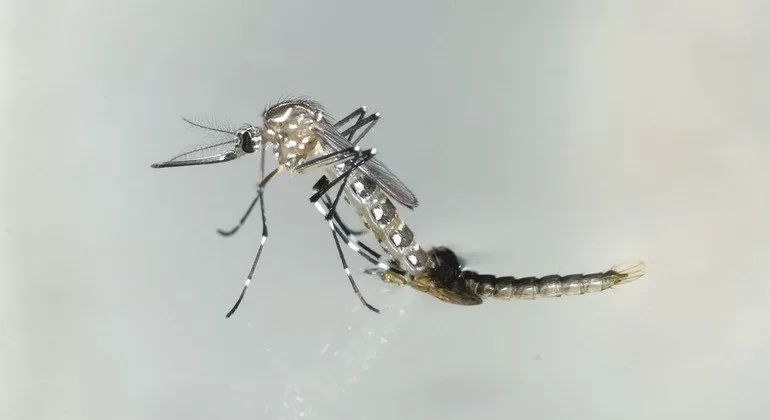
In Thiruvananthapuram, a group of researchers at the Rajiv Gandhi Centre for Biotechnology (RGCB) has made a noteworthy discovery. They found that the dengue virus (DENV), which causes the recurring tropical disease dengue and often sees outbreaks during the monsoon season, becomes more severe and aggressive when grown in mosquito-derived cells and exposed to higher environmental temperatures. This suggests a link between increased temperature and the heightened virulence of the dengue virus.
This research holds significant potential for predicting and managing the severity and potency of dengue. It’s particularly important due to its efforts in understanding the potential impact of global warming on this disease, which bears an estimated global burden of 390 million cases annually, as per the World Health Organization (WHO).
The study’s findings have been published in The Federation of American Societies of Experimental Biology (FASEB) journal, emphasizing the international recognition of its importance.
Dr. Easwaran Sreekumar, who led the research team, highlighted a key aspect of mosquitoes’ body temperature variability in relation to environmental conditions. Unlike higher animals, mosquitoes have fluctuating body temperatures influenced by their surroundings. The research explored whether variations in growth conditions due to higher temperatures could affect the virus’s virulence. The study notably reveals that dengue virus cultured in mosquito cells at elevated temperatures exhibited significantly greater virulence compared to the virus cultured at lower temperatures. This groundbreaking discovery suggests a correlation between temperature and the virus’s aggressiveness.
The research team, led by Dr. Easwaran Sreekumar, also included several other members such as Ayan Modak, Srishti Rajkumar Mishra, Mansi Awasthi, Sreeja Sreedevi, Archana Sobha, Arya Aravind, and Krithiga Kuppusamy.
The team emphasized the significance of their findings, especially in periods of heightened environmental temperatures accompanied by intermittent rainfall that fosters mosquito proliferation. This combination could lead to the emergence of a more virulent dengue virus and subsequently more severe disease conditions. Surprisingly, this aspect has not been thoroughly investigated during dengue outbreaks across different parts of the country. The research offers insights into the potential consequences of global warming on the dynamics of infectious diseases and highlights the need to consider such factors in disease management and prevention strategies.
Previous observations indicated that higher environmental temperatures can lead to a shorter incubation period of the dengue virus in mosquitoes, resulting in an elevated rate of human transmission.
The Director of RGCB, Prof. Chandrabhas Narayana, highlighted the researchers’ efforts to understand the factors behind the varying seriousness of dengue infections. He pointed out the continued absence of effective vaccines or antiviral treatments to control or prevent this recurring disease. The study’s findings have substantial implications in predicting the severity of dengue outbreaks, which could ultimately aid in better disease management.
The study was conducted using a mouse model, where the virulent strain derived from higher-temperature growth led to increased viral presence in the blood, hemorrhage, and severe tissue changes in vital organs such as the heart, liver, and kidneys (typical signs of the disease), and even death.
Dengue is caused by the DENV virus and is transmitted to humans through the bites of infected mosquitoes. The global incidence of dengue has been steadily rising, accompanied by an escalation in disease severity and fatalities. While most cases are mild and self-limiting, some individuals experience severe complications like life-threatening thrombocytopenia (extremely low platelet count) and shock syndrome.
Source TOI










